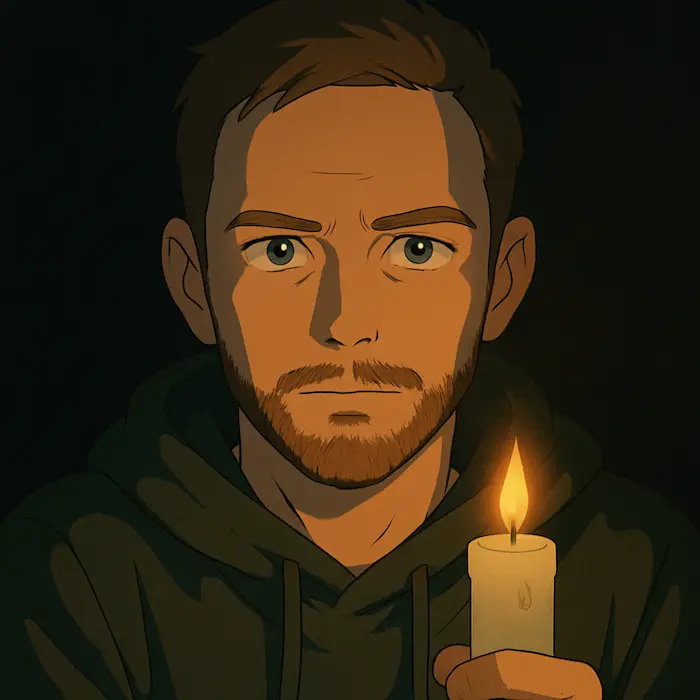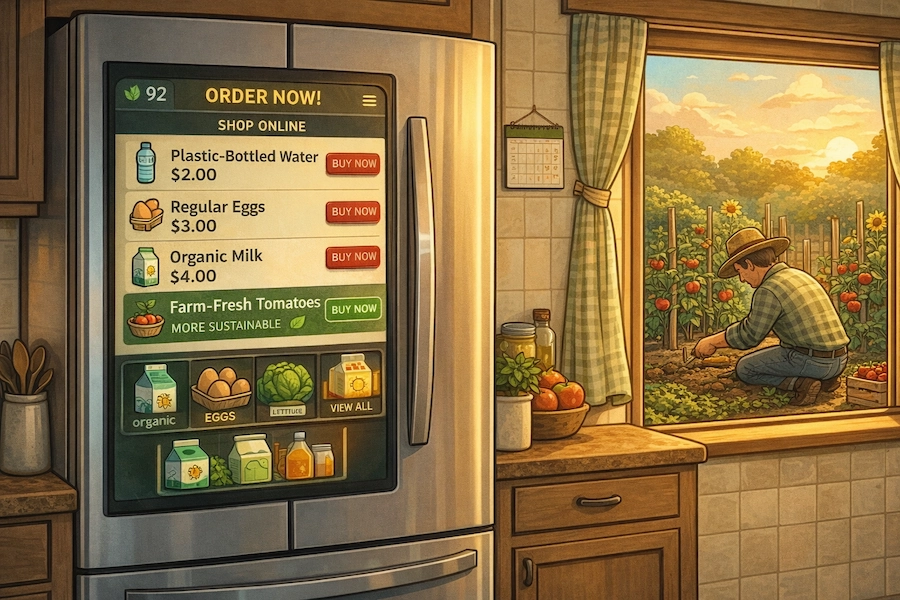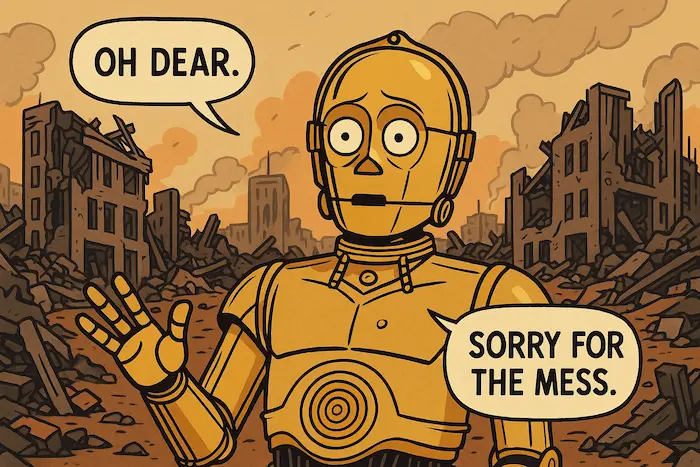What appeared to be a normal Monday morning on April 28, 2025, turned out to be a scary but interesting experience.
The usual, coffee in the morning, kids at school, back in the office, starting to code… and then it happened. The lights went out. Everywhere.
At first, I figured it was just another local power issue. This happens often here, just flip the switches and everything is back up, but then I noticed all my switches were still fine. That was odd.
Then the WhatsApp group of our neighbours was spawning a few messages "Are your lights off as well?"... A minute later someone said "That's strange I'm in Lisbon and we also have no electricity" (Lisbon is a 1-hour drive from where I live). Then another message "The entire country is in blackout!" and then another one, "Also Spain and France are offline". Ok this is strange, the first thing that came to my mind was a possible "cyber attack in preparation for a war" which, at the time, wasn't entirely crazy to think since the escalations with Russia, Ukraine and Trump were escalating as usual.
I messaged my brother who lived in Belgium (other side of Europe) and said:
"Are you also without electricity? Our entire country just went offline. I don't know how long telecom will last. Prepare yourself."
The first 15 minutes of the blackout.
Told my wife this isn't normal and we need to get the kids from school as soon as possible before a global panic starts breaking out and we'll be stuck in traffic. I think we were the first parents at school that picked up their kids.
Teachers gave us that "Do you know something we don't?" look. We didn't. It just felt right to move.
Next stop: buying as much "survival foods" as possible, supermarkets were running on some emergency power source (big appraisal for the Spanish supermarket Mercadona that was taking this very well). Others? Not so much. Mercadona had cellular-powered payment systems, active cooling and all sorts of precautionary measures for this occurrence.
This part is already the first part of learning "What should you buy in case of a long-term blackout / emergency situation". You think that you know what's important but eventually it's better to prepare for this upfront and create a checklist so that in times of rush or panic you don't have to look and think too much and just execute what is needed.
The best thing you can do now is ask your AI of choice what the best long-term survival shelf foods & drinks are for your region and ask it to create a checklist, print out this checklist and put it in a box and hopefully you will never need it.
Put your phones on battery-saving mode asap. You don't know how long it will take, we even decided to turn one phone off and keep one on just in case.
The next 1-4 hours of the blackout.
The crowd is waking up. People start running to the supermarkets, picking up kids from school, buying all the water, bread, and usual products in bulk from the supermarkets, long waiting lines because of technical issues and extra-large shopping carts. All sorts of equipment like gas pots for camping were immediately sold out from all locations.
From a personal perspective I noticed that most of the panic shoppers were international residents (not Portuguese), with a clear majority of American nationality but our region is known for many American immigrants (as many regions in Portugal).
The medical checklist… besides being stocked up already with food & drinks I thought it would also be necessary to get extra medical supplies just in case. Also a checklist upfront of this will come in handy. At this time there were speculations of possible nuclear issues in case a power plant remains without electricity for a long time it can become unstable. Luckily Portugal doesn't have any powerplants but Spain does and since they are neighbours, let's try to prepare for this as well… Again ask your AI of choice for a checklist in case of a nuclear disaster, you will also get a few items to add to your medical checklist like "Potassium Iodide (KI)" however the amount of Potassium Iodide you need to take is quite a lot and most pharmacies don't typically stock this by default so order it upfront (today) with a long shelf life and store it in the same box.
As expected the cellular connections are being overwhelmed, they can't take the pressure and calling, texting, reception becomes non-existent.
At this moment you are in the dark, no electricity, no communication, just speculations about a possible "cyber attack" or a "fire somewhere in France that caught a powerline" with no clear information on when the electricity comes back on. Maybe 1 day, maybe 1 week?
Do you want to take a final hot shower? Better do it fast as the water also got shut down, fill the necessary cups of water to brush your teeth and all other things as fast as possible before nothing is left.
The next 4-10 hours of the blackout.
Everyone starts to barbeque (I know it doesn't sound that bad if you look at it like this)
On that day itself we were having sunny temperatures of 26°C (78,8°F) and we know that if this is going to take days we better start grilling the meat in our fridge.
Most Portuguese people in our region were very calm and relaxed, everyone was helping each other, people were visiting each other asking if they had everything or needed something. Neighbours invited each other for BBQ and there was wine everywhere. While in the capital (Lisbon) the panic got worse, the outskirts just started to play the waiting game.
What about the kids? I have a baby and toddler, not the easiest stage in life. If they like a song, a TV show or something on demand which they had before and now don't it can cause a stir. Make it as fun as possible, good weather outside and just play. But we all know reality is coming and that song that they like is on your Apple playlist which is … ONLINE. That TV show they like? Netflix.
With not a single DVD, record, CD, or a player in our house (because who still owns those things today?) there was no music for them except for what we could make ourselves. So yeah back to the roots it's not bad to download some music, videos, or shows and put them on a USB or a drive and keep that for emergencies. In case of a long-term blackout this can be a lifesaver to keep kids entertained in case it's really needed.
How can we prepare for the longer term… the things I missed which I have bought in the meantime to be better prepared:
- A portable battery with at least 2000 W which can be powered by solar panels which are also portable (see products like Goalzero but strongly advise to look for alternatives based on your region for better prices & quality).
- Starlink internet (consumes only 50-100 W which can be powered by the portable battery): stay connected to the internet and global communication.
- A mini fridge (100-300 W consumption): good for the yoghurts of the kids, some cold beers and other emergency foods.
- A serious medic kit with emergency supplies and medications. Also, I advise looking based on your region but I can recommend the MyFak.
- A radio with hand crank & solar power.
- Water cleaning tablets. Losing access to water was strange, it's so important and in the worst case scenario you could use this to get clean water from public sources. You can also consider capturing and storing rain water if you have the space.
10 to 12 hours after the blackout, we're back online!
Without any warning because we had no communication we were preparing to go to bed when suddenly the lights came back.
Portugal managed to get the power back up using the two systems that had black start capabilities, the Castelo do Bode hydropower dam and the natural gas power station Tapada do Outeiro. Without those a "black start" would have been very difficult getting the entire grid back online at once.
People started dancing and singing in the streets, for a moment life was actually pretty great. It's surprising how much the internet and digital life take from us, and how many new experiences emerge when we disconnect.
What if it was a Cyber Attack, is this scenario plausible?
A coordinated cyber attack could exploit vulnerabilities in infrastructure, software, or even human behavior. We've seen simulated scenarios. We've seen real-world breaches (think Ukraine in 2015–16).
While the official cause may not have been malicious, the experience was a wake-up call. If it had been intentional, if it had lasted longer, if it had spread wider, how prepared are we really?
Resilience doesn't start at the national level. It starts at home. With knowledge, preparation, and a bit of offline common sense.
Looking back at this experience
Maybe we overreacted. Maybe not. What if it had lasted days? Weeks?
We were lucky. Living in rural Portugal with helpful neighbors made this experience feel almost... comforting. Try that in Brussels. Probably not the same vibe.
This can happen again, today or tomorrow. It's better to be prepared and have at least your basics in order. In a fast advancing world where cyber attacks, AI and global conflicts can turn quickly we need to spend more time thinking about the ‘What if'.
The next time this happens my family won't be in the dark.




